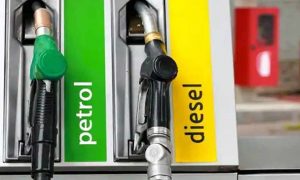The government on Tuesday revised the windfall gains tax on domestically produced crude oil, slashing it to zero from Rs 4,100 per tonne.
The center revised the windfall tax on domestically produced crude oil, cutting the tax rate to zero from Rs 4,100 per tonne. Last month, the government scrapped the Special Additional Excise Duty (SAED) on export of diesel from Rs 0.5 per litre to nil which is to continue. The windfall tax exemptions for the export of petrol and ATF (aviation turbine fuel) will also remain in place. These changes in the tax rates will be implemented from Tuesday, 16 May onwards, according to a notification released by the Central Board of Indirect Taxes and Customs. The windfall tax rates are revised every fortnight based on global crude oil prices.
Read More: LIC Policy: What Is Dhan Rekha Plan? Know Loan, Maturity Benefit And Other Key Details
What is windfall tax, why is it imposed?
Windfall tax is levied as a special additional excise duty which is aimed at absorbing the super-profits earned by domestic crude oil producers due to high global crude product prices and is revised every fortnight by the central government. The rates of the levies are being changed depending on crude prices and the refining spread.
The Indian government in July last year imposed the windfall tax on crude oil producers and levies on exports of gasoline, diesel and aviation fuel after private refiners sought overseas markets to gain from robust refining margins, instead of selling at lower-than-market rates in the country.
However, international oil prices have cooled since then, eroding the profit margins of both oil producers and refiners. The government levies tax on windfall profits made by oil producers on any price they get above a threshold of USD 75 per barrel. The levy on fuel exports is based on cracks or margins that refiners earn on overseas shipments. These margins are primarily the difference between the international oil price realised and the cost.



































